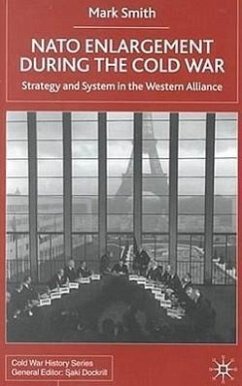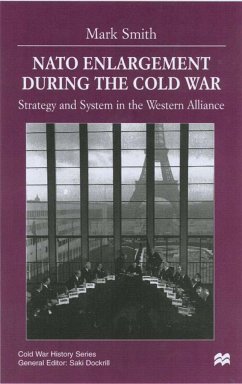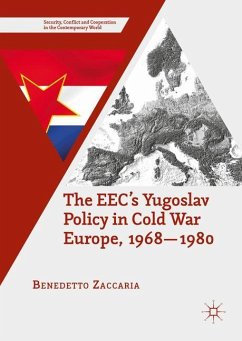
The Balkans in the Cold War
Versandkostenfrei!
Versandfertig in 6-10 Tagen
76,99 €
inkl. MwSt.

PAYBACK Punkte
38 °P sammeln!
Positioned on the fault line between two competing Cold War ideological and military alliances, and entangled in ethnic, cultural and religious diversity, the Balkan region offers a particularly interesting case for the study of the global Cold War system. This book explores the origins, unfolding and impact of the Cold War on the Balkans on the one hand, and the importance of regional realities and pressures on the other. Fifteen contributors from history, international relations, and political science address a series of complex issues rarely covered in one volume, namely the Balkans and the...
Positioned on the fault line between two competing Cold War ideological and military alliances, and entangled in ethnic, cultural and religious diversity, the Balkan region offers a particularly interesting case for the study of the global Cold War system. This book explores the origins, unfolding and impact of the Cold War on the Balkans on the one hand, and the importance of regional realities and pressures on the other. Fifteen contributors from history, international relations, and political science address a series of complex issues rarely covered in one volume, namely the Balkans and the creation of the Cold War order; Military alliances and the Balkans; uneasy relations with the Superpowers; Balkan dilemmas in the 1970s and 1980s and the 'significant other' - the EEC; and identity, culture and ideology. The book's particular contribution to the scholarship of the Cold War is that it draws on extensive multi-archival research of both regional and American, ex-Soviet and Western European archives.












